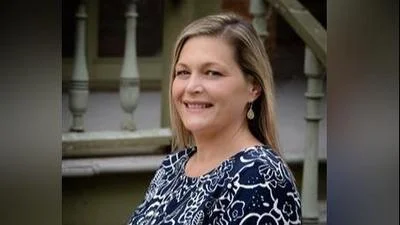Shae Alan Sortwell, Wisconsin State Representative for 2nd District | Official Website
Shae Alan Sortwell, Wisconsin State Representative for 2nd District | Official Website
According to the Wisconsin State Legislature's official website, the bill was described as follows: "battery or threat to jurors and providing a penalty".
The following is our breakdown, based on the actual bill text, and may include interpretation to clarify its provisions.
In essence, this bill amends and creates statutes to specifically address and increase penalties related to battery or threats against jurors and their family members. Under current law, battery is a Class A misdemeanor, but special circumstance battery, such as attacks on law enforcement or jurors, is a Class H felony. The bill elevates threats or battery against jurors or their family members to a Class H felony. It also authorizes judges to prohibit convicted individuals from contacting jurors involved in their case during their sentence or probation. Additionally, the Joint Review Committee on Criminal Penalties may review this bill due to the creation of new crimes or revisions to existing penalties. The bill includes amendments across various statutes to ensure comprehensive application.
The bill was co-authored by Senator Van H. Wanggaard (Republican-21st District), Representative Barbara Dittrich (Republican-99th District), Representative Bob G. Donovan (Republican-61st District), Representative Benjamin Franklin (Republican-88th District), and Representative Dave Maxey (Republican-83rd District). It was co-sponsored by Senator Steve L. Nass (Republican-11th District) and Senator Eric Wimberger (Republican-2nd District), along with eight other co-sponsors.
Shae A. Sortwell has co-authored or authored another eight bills since the beginning of the 2025 session, with none of them being enacted.
Sortwell graduated from the University of Wisconsin-Green Bay in 2006 with a BA.
Sortwell, a Republican, was elected to the Wisconsin State Assembly in 2019 to represent the state's 2nd Assembly district, replacing previous state representative André Jacque.
In Wisconsin, the legislative process starts when a senator, constituent, group, or agency proposes an idea for a bill. After drafting, the bill is introduced, numbered, and referred to a committee for review and public input. If approved, it moves through three readings and votes in both the Senate and Assembly. Once both chambers pass the same version, the bill goes to the governor, who can sign it, veto it, or let it become law without a signature. Only a small share of bills introduced each session ultimately become law. You can learn more about the Wisconsin legislative process here.
| Bill Number | Date Introduced | Short Description |
|---|---|---|
| AB26 | 02/17/2025 | Battery or threat to jurors and providing a penalty |
| AB17 | 02/06/2025 | Creating an employee ownership conversion costs tax credit, a deduction for capital gains from the transfer of a business to employee ownership, and an employee ownership education and outreach program. (FE) |






 Alerts Sign-up
Alerts Sign-up